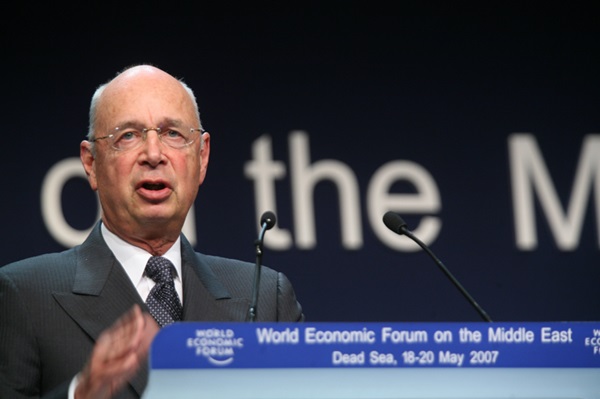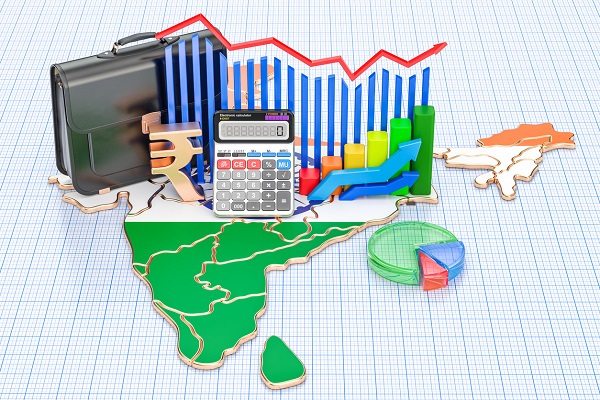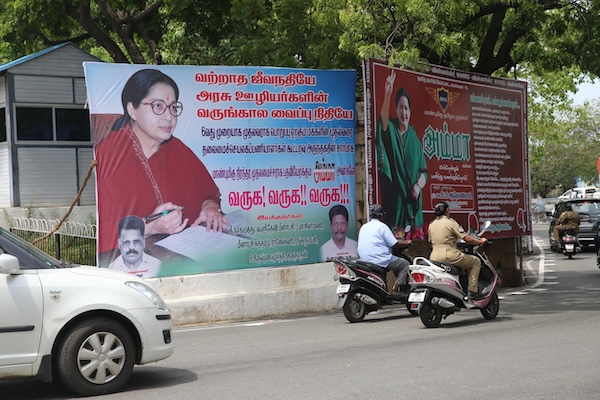.png)
Gurumurthy, ex-central banker and a Wharton alum, managed the rupee and forex reserves, government debt and played a key role in drafting India's Financial Stability Reports.
April 26, 2025 at 6:08 AM IST
A whistleblower’s allegations that included, amongst other things, that Klaus Schwab manipulated the Global Competitiveness Rankings, which forms the basis of the discussions at the annual World Economic Forum’s meetings at Davos, have brought renewed focus onto the relevance of WEF and its high-profile founder.
It was alleged that at the insistence of governments unhappy with their rankings, the reports were changed. Other charges by the whistleblower include Schwab soliciting a Nobel Prize for himself, misuse of WEF funds, and ethical misconduct involving Schwab and his wife, Hilde—such as Schwab asking his junior employees to withdraw thousands of dollars from the ATMs on his behalf, and
Hilde arranging “token” meetings for luxury travels at WEF’s expense, which they deny.
But it is the claim about GCR manipulation that comes as the Libor Moment for the WEF.
The WEF Board of Trustees took cognisance of the charges and announced an investigation that eventually led to the resignation of Schwab. If the investigations confirm wrongdoing, it reflects poorly on the Board, which includes the likes of IMF chief Kristalina Georgieva and former US Vice President Al Gore, for the mere fact that they have to act upon an anonymous whistleblower’s report.
The Libor scandal involved major banks manipulating the London Interbank Offered Rate, a key global benchmark trusted by financial markets across the world, for interest rates, to benefit their trading positions or appear more creditworthy. It shattered confidence in the integrity of financial institutions and benchmarks, revealing widespread collusion and weak oversight.
Elite Club
Founded in 1971 by Schwab, the WEF has positioned itself as a powerful venue for shaping global agendas and tackling some of the world’s most pressing issues through public-private cooperation. Each year, its flagship conference in Davos, Switzerland, attracts a carefully curated mix of political leaders, corporate executives, intellectuals, and celebrities.
While the WEF presents itself as a champion of sustainable development and inclusive capitalism, it has drawn increasing criticism for perpetuating elitism, favouring corporate interests, and lacking meaningful accountability. This extended critique delves into the core criticisms of the Forum and its founder, covering themes of exclusivity, corporate dominance, performative rhetoric, ideological consistency, and reputational fragility.
The WEF’s reputation as an exclusive enclave for the global elite is central to its critique. Participation is often limited to those who can afford its steep fees or are deemed influential enough to merit an invitation. This systematically excludes diverse voices—especially from developing countries, grassroots movements, and economicallymarginalised communities.
Such exclusivity not only fosters the perception of an unelected, unaccountable elite directing global affairs but also widens the disconnect between decision-makers and citizens. In an era of rising inequality and political alienation, the image of powerful figures deliberating behind closed doors provokes understandable skepticism.
Although the WEF touts its commitment to solving global challenges—climate change, poverty, inequality—it remains heavily reliant on corporate sponsors, many of whom contribute to the very crises the Forum claims to combat. Environmental degradation, exploitative labour practices, tax evasion, and lobbying against regulation are not uncommon among WEF’s corporate partners.
The concept of “stakeholder capitalism,” promoted by Schwab, is often seen as a repackaging of existing corporate structures rather than a radical departure from shareholder primacy. The risk here is that the Forum offers companies a platform to polish their reputations without changing their practices.
A frequent criticism of the WEF is that its impact is more theatrical than transformative. High-profile speeches, glossy publications, and media-friendly slogans abound, but concrete, measurable outcomes are rare. Initiatives launched at Davos often lack follow-through or are so vague that they escape rigorous evaluation.
The “Great Reset” proposal, launched during the COVID-19 pandemic to advocate for systemic reforms, is a case in point. Meant to push for systemic change, it lacked clarity—leaving it vulnerable to conspiracy theories. Many saw it as emblematic of the Forum’s tendency to generate headlines without providing real solutions.
Schwab’s long tenure as Executive Chairman has imprinted the WEF with his technocratic worldview. His advocacy for the “Fourth Industrial Revolution” reflects an unshakable belief in technology as a force for good. However, this optimism is not always tempered by sufficient attention to the ethical, political, and social implications of rapid technological change.
Schwab’s leadership model has also raised questions about transparency and succession. As a private foundation, the WEF is not subject to the same checks and balances as public institutions, and Schwab’s enduring influence suggests limited openness to reform or new ideas.
In the digital age, the WEF has become an icon—often satirised or vilified in equal measure. It has been accused of everything from globalist overreach to empty virtue signalling. This dual critique from the political right and left reflects a broader erosion of trust in elite institutions.
While the Forum has tried to burnish its image by emphasising environmental, social, and governance goals, diversity, and inclusive dialogue, these efforts are often perceived as reactive and cosmetic. Critics argue that the WEF changes language faster than its practices. As such, it risks being seen as performative rather than transformative.
Indian Interest
Of late, there has been growing Indian interest, from business tycoons and politicians to bureaucrats and media. It may be a reflection of the country’s ambitions; and there are also psychological reasons why leaders flock to events like Davos. It's not just about economics or policy.
Attending WEF signals high status. It’s a form of “conspicuous participation”, like conspicuous consumption—showing you belong to a powerful, exclusive group.
Of course, networking is important and the sense of tribal belonging among global leaders can be both comforting and validating. Attendees often see themselves as change-makers or thoughtleaders. Events like WEF reaffirm this identity.
There’s also a psychological appeal to being part of a “mission” to solve global problems, even if the solutions are complex or symbolic. Meanwhile, not being part of conversations that could define careers or industries, might be seen as negative.
Conclusion
Despite persistent questions about its purpose, the WEF occupies a unique space in global governance. It is a powerful convening body with the ability to set agendas and influence discourse. However, its current form is riddled with contradictions that threaten its credibility and long-term relevance.
For the WEF to truly "improve the state of the world," it must democratise its processes, enforce stronger accountability from its corporate partners, and move beyond performative gestures.
Schwab's vision has brought the Forum to global prominence, but in the absence of any succession plans and the allegations that he “is a law unto himself” within the organisation, WEF risks becoming a symbol of the very inequality it claims to combat.




